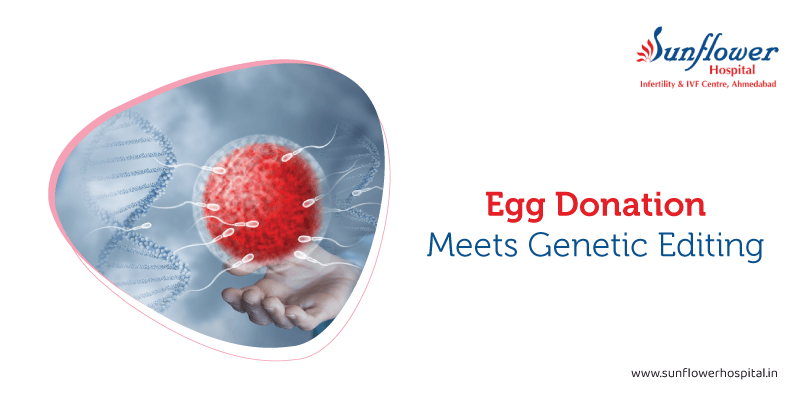Did you know designer babies could be highly resistant to diseases like cancer? The development process of genetic editing allows future generations to be immune to such diseases. This incredible possibility of genetic editing is something that is at the forefront of reproductive technology.
The combination of egg donation in India with genetic editing could revolutionise human reproduction in ways that we can't even imagine. It can offer endless opportunities for enhancing human health and preventing genetic diseases.
Although egg donation has been prevalent for ages, gene editing technology is a new incorporation that can create a whole different dimension that changes how we conceptualize genetics and the future of reproduction.
The term “genetic babies” is a scientific term that is being used for an embryo that is genetically modified to produce a child with certain traits and characteristics. Even though this concept seems to be coming straight out of fiction, it may become a reality soon. This concept is also closely tied to the IVF journey. In order to understand that connection, we must look at the mechanics behind the creation of designer babies.
Process of Creation of Designer Babies
The advancements in IVF technologies helped scientists discover a way to create babies in the lab.
- The next step in the process is embryo editing, which is used to produce a healthy GMO baby. Scientists also found a way to optimise the genes for disease prevention as well as making the babies resistant to them. Not just that, choosing the aesthetics and personality traits is an aspect that enhances that optimisation.
- There are various technologies used in this procedure; one is Preimplantation Genetic Diagnosis (PGD), where the defects are identified, and only those embryos that contain certain genetic disorders are implanted. Along with this technology, there is also one more that is currently under development, CRISPR-CAS9, that involves modifying DNA fragments to prevent and correct disease-causing genetic disorders.
Even though this procedure seems like a solution that could prevent diseases and offer incredible medical advancements, it also raises a lot of ethical concerns and what the future lies in store is very uncertain. Let's have a look at what the future of fertility treatments could look like.
Future
Advancements in IVF technology can also assist in reaching more people for the possibility of conceiving healthy babies. The hope for achieving a better tomorrow is not out of the question as the new technologies can help find a cure for disease and stop it from getting passed on to the next generation.
Although healthy babies are a fair possibility, the question is where do we draw the line, and what are the ethical concerns that may arise? Prevention of diseases is something that would be appreciated above and beyond but editing genes such as intelligence and physical traits has the power to create an unfair world.
There are many legal complications as well, as numerous countries have laws governing gene editing that would prevent experimentation. The combination of gene editing and egg donation could reshape the reproduction process.
As technology progresses, the best IVF specialist in India may soon start offering this treatment which would ignite the start of a new era in human reproduction.


Leave a Comment